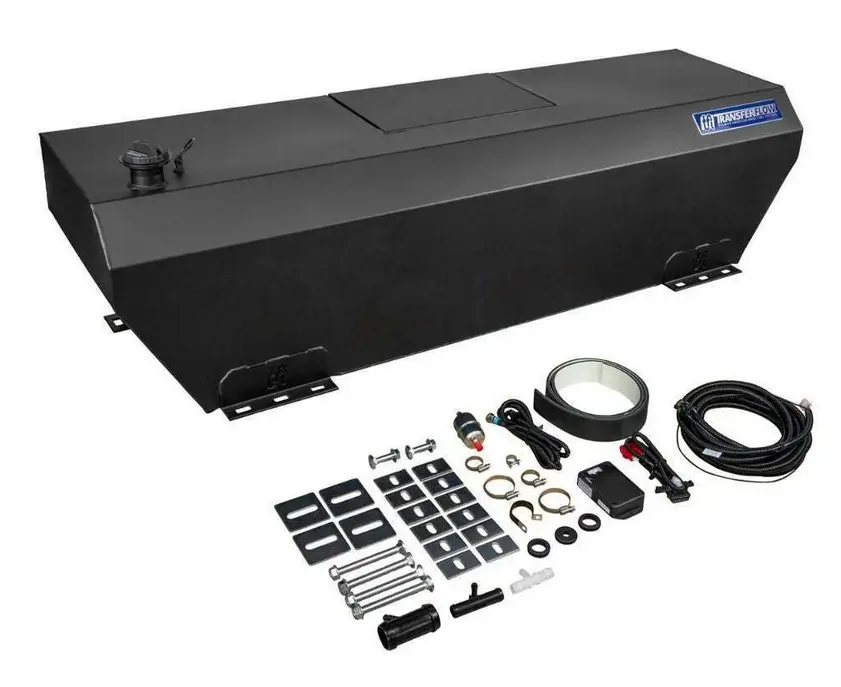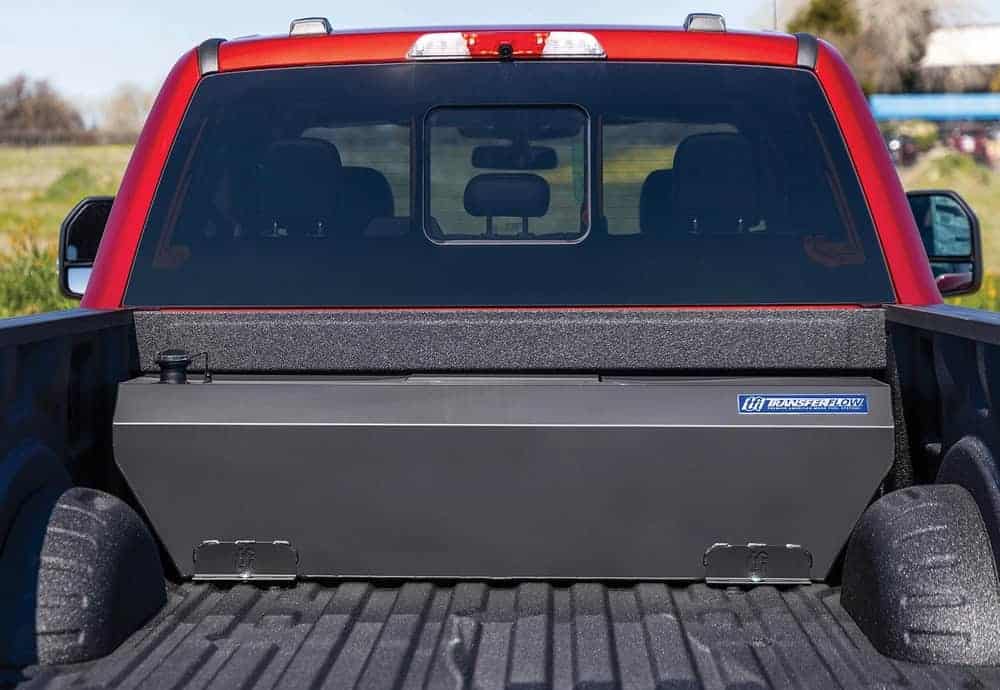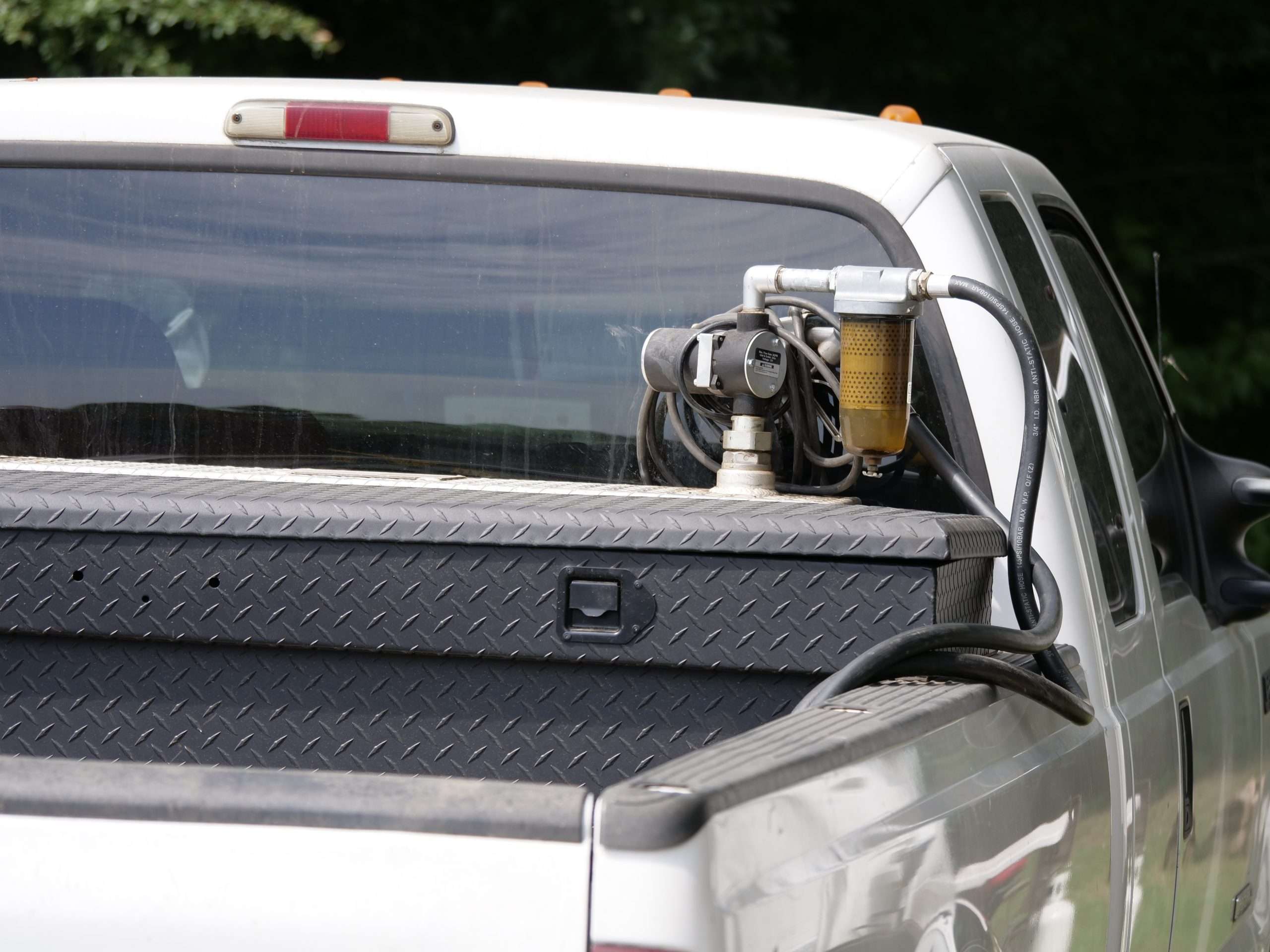Auxiliary Gasoline Tank for Truck Bed: 5 Key Benefits & Guide
Auxiliary Gasoline Tank for Truck Bed: 5 Key Benefits & Guide
If you’re a truck owner who spends long hours on the road, you’ve likely felt that familiar pang of range anxiety. Watching your fuel gauge drop while towing a heavy load or navigating remote areas without a gas station in sight is more than just an inconvenience; it’s a genuine concern for your schedule and safety. This is where an auxiliary gasoline tank for your truck bed becomes a game-changer. This comprehensive guide will walk you through the five key benefits of installing one and provide a practical guide to help you make the right choice, ensuring you can go further with confidence and significantly cut down on fuel stops.
Why Your Truck Needs an Auxiliary Gasoline Tank
An auxiliary fuel tank is more than just an extra gas can. It’s a professionally installed system that seamlessly expands your truck’s fuel capacity. For anyone who uses their truck for work, long-haul travel, or outdoor adventures, the advantages are immediate and substantial. Let’s dive into the core benefits that make this upgrade a smart investment.

1. Drastically Increase Your Driving Range
The most obvious and impactful benefit is the massive extension of your driving range. Imagine combining your truck’s standard 26-gallon tank with a 50-gallon auxiliary tank. Suddenly, you have a total capacity of 76 gallons. Depending on your truck’s fuel economy, this could translate to over 1,000 miles of uninterrupted travel. This is a lifesaver for:
- Long-Haul Towing: Maintain consistent power and avoid the hassle of maneuvering a large trailer through crowded gas stations.
- Remote Job Sites: Work in rural or undeveloped areas without worrying about where the next fill-up will be.
- Cross-Country Road Trips: Spend more time enjoying the journey and less time planning your route around fuel stops.
2. Save Significant Time and Money
Time is money, and an auxiliary gasoline tank saves you plenty of both. Fewer stops mean less time idling and more time being productive or reaching your destination. Financially, you gain the upper hand. You can fill up both tanks when you find fuel at a lower price, effectively buying gas in “bulk.” Over a year, this strategic fueling can lead to substantial savings, especially if you drive frequently. According to a report from the Alternative Fuels Data Center, reducing idle time and optimizing fuel purchasing are key strategies for fleet cost reduction, a principle that applies directly to individual truck owners as well.
3. Enhanced Safety and Peace of Mind
Carrying loose gas cans in your truck bed is a significant safety hazard. They can tip over, leak fumes, and pose a serious fire risk, especially in an accident. A Department of Transportation (DOT)-compliant auxiliary tank is a sealed, secure system that is permanently mounted. It eliminates these risks, providing a much safer way to transport extra fuel. The peace of mind that comes from knowing you have a reliable reserve in case of emergencies or unexpected detours is invaluable.
4. Protect Your Truck’s Resale Value
A well-maintained, professionally installed auxiliary fuel tank is often viewed as a valuable aftermarket upgrade. Unlike modifications that can hurt resale value, this addition appeals to a wide range of potential buyers—from contractors to overlanders. It signals that the truck was built for serious, long-distance use and cared for by an owner who invested in its utility. When it’s time to sell, this feature can make your truck stand out from the crowd.
5. Unmatched Convenience and Versatility
Finally, the sheer convenience cannot be overstated. With a transfer pump system, you can refill your main tank on the go without stopping. This is perfect for situations where you’re running low but are in a hurry to get to a meeting or a job site. It also frees up precious bed space that would otherwise be occupied by bulky and unsafe gas cans, allowing you to carry more tools or gear.
Choosing the Right Auxiliary Fuel Tank: A Buyer’s Guide
Not all auxiliary gasoline tanks are created equal. Making the right choice involves considering several factors to ensure safety, compatibility, and performance.
Material and Construction: Steel vs. Aluminum
The two primary materials for auxiliary tanks are steel and aluminum. Each has its pros and cons.

| Material | Pros | Cons | Best For |
|---|---|---|---|
| Steel | Extremely durable, high impact resistance, often more affordable. | Heavier, can be prone to rust if not properly coated. | Heavy-duty work environments, construction, and rough terrain. |
| Aluminum | Lightweight, highly resistant to corrosion, doesn’t rust. | Generally more expensive, less impact-resistant than steel. | Overlanding, general use, and situations where weight savings are critical. |
Capacity and Fitment
Tank capacities can range from 30 to over 100 gallons. Your choice should be guided by your needs:
- Calculate Your Needs: Estimate your average weekly mileage and fuel consumption. A 50-60 gallon tank is a popular sweet spot for most users, doubling their range without being excessively large.
- Check Fitment: Tanks are designed to fit specific truck models and bed sizes. Ensure the model you choose is a direct fit for your truck’s make, model, and year. Many are designed to be a “toolbox and tank in one,” maximizing space efficiency.
Transfer System and Installation
How the fuel gets from the auxiliary tank to the main tank is critical. There are two main types of transfer systems:
- Gravity-Fed Systems: Simple and reliable, using gravity to transfer fuel. They require the auxiliary tank to be mounted higher than the main tank’s fill neck.
- Pump-Driven Systems: Use an electric pump for transfer, offering more control and flexibility in tank placement. This is often the preferred method for its speed and reliability.
Expert Insight: We consulted with John Miller, a certified master mechanic with over 20 years of experience in heavy-duty vehicle systems. He emphasizes, “A professional installation is non-negotiable for a truck bed auxiliary gasoline tank. It’s not just about bolting it down. A certified technician will ensure all fuel lines, electrical connections for pumps, and venting systems are installed to meet strict safety standards, preventing leaks and fire hazards.” This aligns with the need for expertise you can trust.
Legal and Safety Compliance
Always ensure the auxiliary fuel tank you purchase is DOT compliant. This means it has been tested and certified to meet federal safety standards for fuel storage. Be aware of any state-specific regulations regarding auxiliary fuel tank capacity and installation. For the most accurate information, refer to the National Highway Traffic Safety Administration (NHTSA) website.
Frequently Asked Questions
Q: Is it difficult to install an auxiliary gasoline tank for a truck bed?
A: While a mechanically inclined individual might attempt it, we strongly recommend professional installation. The process involves drilling into the bed, running fuel lines, and often wiring an electric pump. A mistake can lead to dangerous fuel leaks. The cost of professional installation is a worthwhile investment in safety and reliability.
Q: Will an auxiliary tank void my truck’s warranty?

A: Generally, no, if installed correctly. However, if a problem arises that can be directly linked to the aftermarket tank (e.g., a fuel system failure caused by the installation), the manufacturer may deny a warranty claim for that specific component. It’s best to check your warranty terms and use a certified installer who can provide their own workmanship warranty.
Q: How do I fuel the auxiliary tank?
A: Most auxiliary tanks have their own dedicated fill port, typically located in the bed sidewall or through a door in the bed itself, similar to your main tank’s filler. You simply pump gas into this separate port.
Q: Can I use an auxiliary tank for diesel?
A> Absolutely. The principles are the same, and many manufacturers offer identical models designed specifically for diesel fuel. Just be sure to select the correct model for your fuel type.
Final Thoughts
Investing in an auxiliary gasoline tank for your truck bed is one of the most practical and empowering upgrades you can make. It transforms your vehicle, giving you the freedom to travel farther, work more efficiently, and operate with greater safety and peace of mind. By carefully considering your needs, choosing a high-quality, compliant tank, and opting for professional installation, you’ll unlock the full potential of your truck for years to come.
Sources and Further Reading
- Alternative Fuels Data Center. U.S. Department of Energy. https://afdc.energy.gov/data
- National Highway Traffic Safety Administration (NHTSA). https://www.nhtsa.gov/









